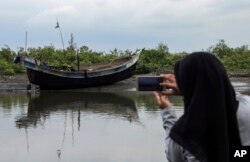Indonesia Hopes to Flex Diplomatic Muscle With Security Council Seat JAKARTA â€" Indonesia has been chosen as one of five non-permanen...
JAKARTA â€"
Indonesia has been chosen as one of five non-permanent members of the United Nations Security Council after a competitive bidding process, inaugurating what is likely to be a period of greater diplomatic and geopolitical activity for the world’s fourth largest country.
This is Indonesia’s fourth time on the Security Council, the most powerful U.N. body, which is charged with maintaining “international peace and security.†Non-permanent members are elected every five years; the 2019 lineup also includes Germany, South Africa, the Dominican Republic, and Belgium.
Despite its size and population, Indonesia has not always been a vocal geopolitical actor, focusing instead on economic growth and internal affairs. But in recent years, it has pivoted toward becoming a regional power, leading major efforts on maritime security and also expressing solidarity with Muslim communities in places like Myanmar and Palestine. Indonesia Foreign Minister Retno LP Marsudi has already said that the Palestinian issue will be a “concern†for Indonesia during its Security Council tenure.

Marsudi heavily lobbied member states in advance of the election last week. Indonesia competed against the Maldives for one of the non- permanent seats allocated to Asia and Africa.
After the election, she told reporters that Indonesia would prioritize “peace and stability [and] combating terrorism and radicalism.â€
“We will continue to advocate for greater transparency and accountability,†said Marsudi. “We will always make ourselves available and accessible to all members, to listen to their concern and expectations and bring those voices to the council.â€
Potentially increased role
A non-member state only has five years on the council so its powers are somewhat constrained from the start. But one area where Indonesia might make an impact is in peacekeeping, since it currently ranks “9th out of 121 contributing countries to U.N. peacekeeping operations,†according to the Lowy Institute.
The seat could also reinforce Indonesia’s vision of being a “global maritime fulcrum, President Joko “Jokowi†Widodo’s ambitious plan to make Indonesia a regional maritime power both in the economic and security spheres.
“Indonesia could use its seat to advocate more for maritime security,†said Pandu Utama Manggala, a researcher at the National Graduate Institute for Policy Studies in Tokyo. “The world is no longer only dealing with terrorism and extremism, and Indonesia has many more areas in which to contribute.â€
“Indonesia and the U.K. are the only two countries in the next Security Council with huge maritime borders, which will give them authority on the subject,†he added. “Maritime security includes things like piracy, smuggling, and human rights, so it is a broad issue.â€
Beyond the U.N. eff ort, Indonesia also created a foreign aid agency for the first time earlier this year, another indicator of a more outward-looking foreign policy.
Limits of action
But not everyone is sure that the Security Council seat will translate to real power.
“It’s all about the prestige,†said Yohanes Sulaiman, a lecturer at General Achmad Yani University. “Jokowi is not really that interested in foreign affairs and Retno is not that forceful either, she is more of a safe player.†He contrasted the present, decentralized era of Indonesian politics under Jokowi to the last time Indonesia had a Security Council seat, under President Susilo Bambang Yudhoyono.
“Now it’s different from the SBY years, when power was centralized and Indonesia could make a point on the world stage,†he said. “Jokowi lets everybody talk… there is no coordination.â€
Political analyst Aaron Connelly also wrote on Twitter that he was “not quite s o optimistic†about Indonesia’s human rights commitments, because “Indonesian diplomacy on the Rohingya crisis has been superficial and feckless thus far, and Jakarta is likely to oppose sanctions or an [International Criminal Court] referral†for Myanmar, which has been accused of perpetrating a genocide against the Muslim Rohingya minority.

Indonesia may also be yet unprepared for scrutiny into its own human rights record; just yesterday, the country barr ed the U.N. high commissioner for human rights from entering its eastern provinces of Papua, where there has been a long-running separatist conflict and ongoing violence.
In fact, some of the most promising diplomatic overtures from Indonesia are coming from non-state actors. A leader of the Indonesian Sunni Muslim organization Nahdlatul Ulama, considered the world’s largest Muslim organization, visited Israel last week for an interfaith dialogue, despite the deep current anti-Semitism in Indonesia. The same leader, Yahya Cholil Staquf, also met with U.S. Vice President Mike Pence in the White House last month.
Source: Google News